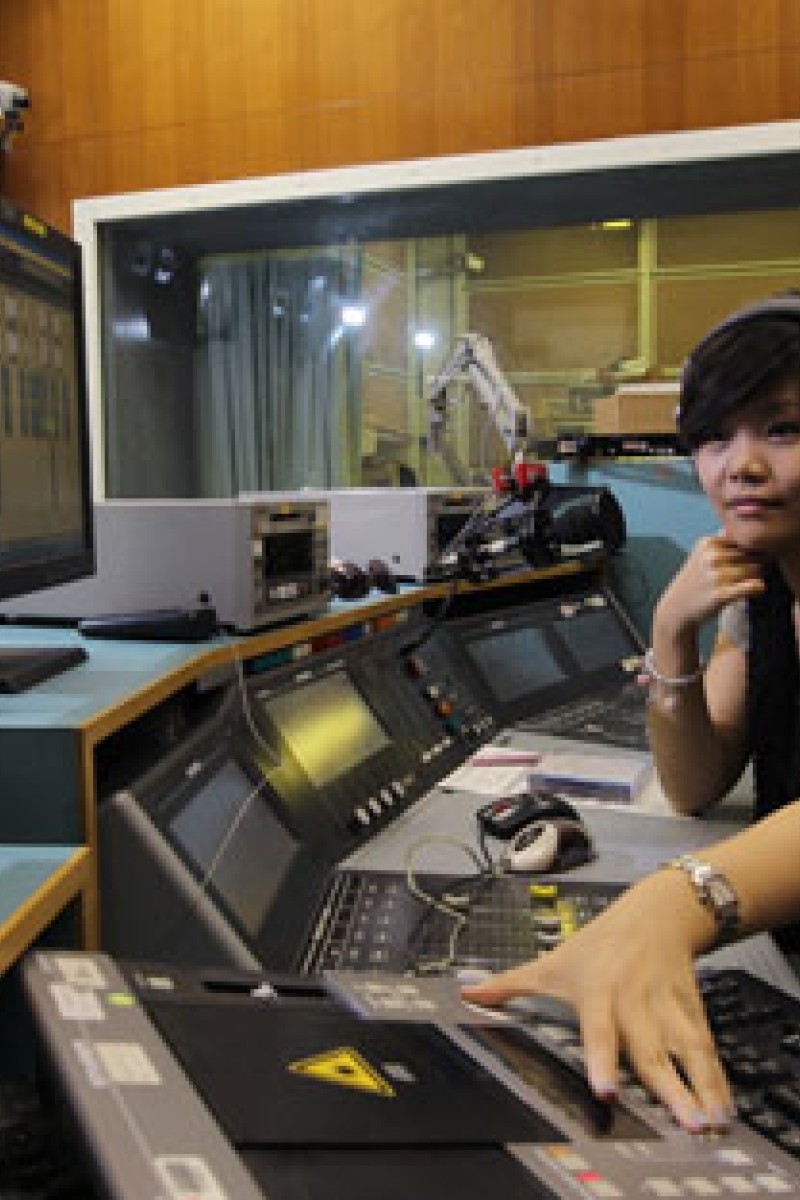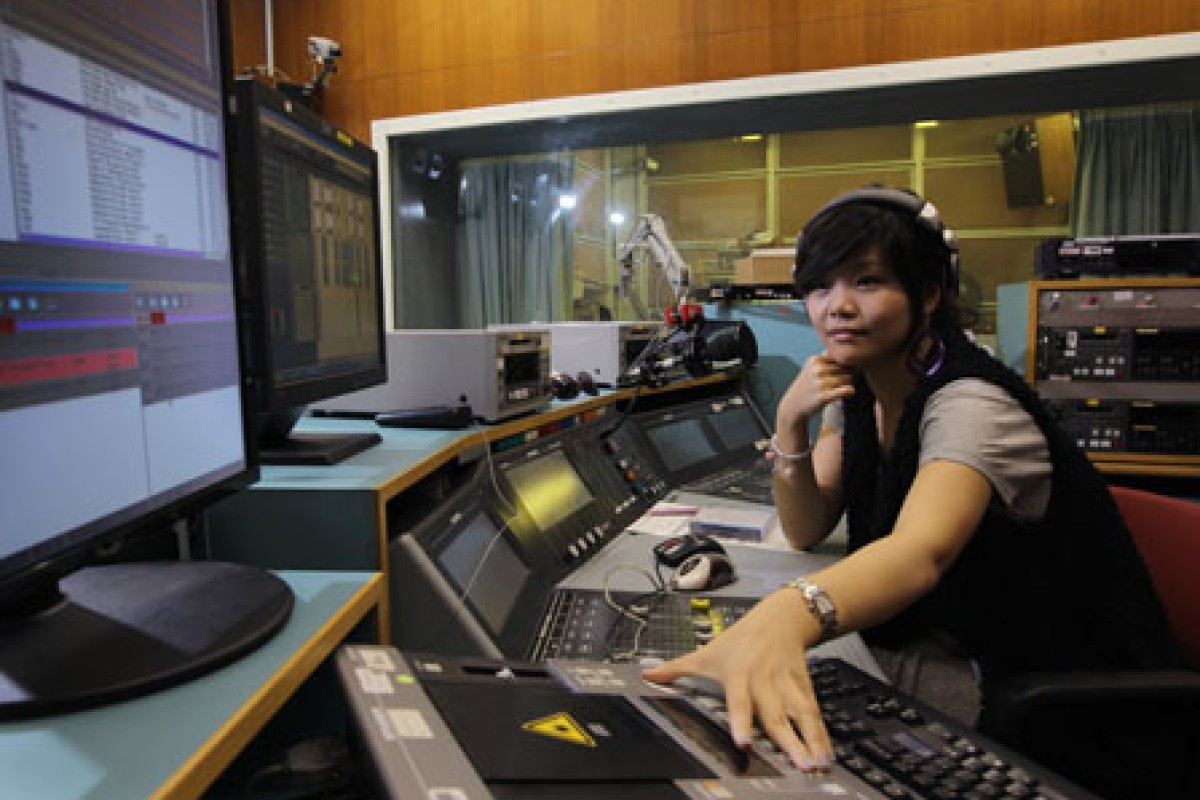
Working as a radio presenter can be an exciting career, just ask RTHK star Alyson Hau
 Alyson Hau gets down to work at RTHK's studios. The versatile presenter started her career after winning a contest and has been on radio for 11 years.
Alyson Hau gets down to work at RTHK's studios. The versatile presenter started her career after winning a contest and has been on radio for 11 years.Requirements
To become a radio host, you need to be articulate, sociable and talkative. It is important to be confident and joining a school public speaking club or taking theatre lessons can help you acquire these skills.
You should also be a good observer, and be interested in people. Try to develop as much knowledge as you can in the area in which you would like to work, for example music, news or politics.
Qualifications
You will need a good basic education, but a degree is not essential. Skills are more important than education in this field.
You must learn how to speak so people want to listen and you need basic journalism skills, like how to do research and conduct interviews.
Hau started working in radio early in life, so she learned mainly on the job and by observing senior presenters.
After a few years of experience, Hau decided to study drama at the Hong Kong Academy for Performing Arts (HKAPA). She says there are many similarities between the two professions. While at HKAPA, she also undertook some voice training, which is vital for the job.
If you would rather learn everything in one place, it is possible to gain specialised qualifications like the Broadcast Journalism Concentration degree at Hong Kong Baptist University's Department of Journalism. Hau says news anchors need a stronger journalism background and a journalism or media studies degree could help. (Check out the Journalism and Media Studies Centre at the University of Hong Kong).
Work prospects
When Hau was still a teenager, she heard Metro was running a competition to hire new blood.
She recorded a demonstration CD, but wasn't confident enough to submit it. However, her mother found it and urged her to enter the competition. "A lucky accident", as she calls it.
Hau won the competition and started working for Metro as a programme presenter, conducting interviews and running a show.
After a year, she went to work for another show at Hong Kong Commercial Broadcast. There she learned about production and how to put a show together using editing software, deciding what comes first and last.
Today, Hau is a presenter and producer for RTHK Radio 3's Teen Time (daily, 9pm to 10pm) and the Chart Show (Sundays, 9.30am to 1pm). She is also one of the four presenters for Radio 2's Morning Suite (daily, 6am to 10am).
Other positions at radio stations include scriptwriters and researchers.
Scriptwriters create the scenarios of some of the more complex shows, while researchers find out more about a person or topic, then compile the information for the producer who uses it as background for interviews.
Long-term prospects
After 11 years working in radio, Hau is now looking for some variety. She acts as an MC for celebrity events, does some voiceover work for commercials and appears on TV as a presenter for different shows.
Average pay
An entry-level producer will earn from HK$13,000 to HK$15,000 a month, working their way up to around HK$30,000.
Where to apply
To get your foot in the door, you can enter annual competitions conducted by radio stations, or apply for an intern's position. Internships run for one to four weeks and are a great way to learn the business. Interns do research, put show segments together and do voice tests. Every summer, Hau invites four student reporters to follow her work schedule for one month. They go to interviews with her, see how a show is put together, and even get to present the feature they have been working on.
A day at work
Hau wakes up every day at 5am. She's ready to go on air at 6am, when Morning Suite starts.
After the show she usually takes a break before going to interviews for one of her three shows. In the afternoon, she prepares for Teen Time and does more planning.
Every week, Hau attends RTHK's general and creative meetings.
She writes blogs, follows social media like Facebook and Weibo, and puts together podcasts uploaded to the RTHK website. Hau gets only Saturdays off.
"You need to be there, and when you're sick, the whole world knows! People don't care if you're sad or if it's your birthday, your job is to make the show sound good, so you need to be good at hiding your emotions," Hau says.